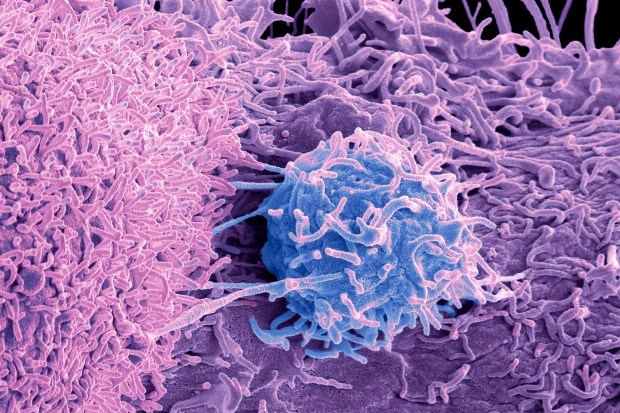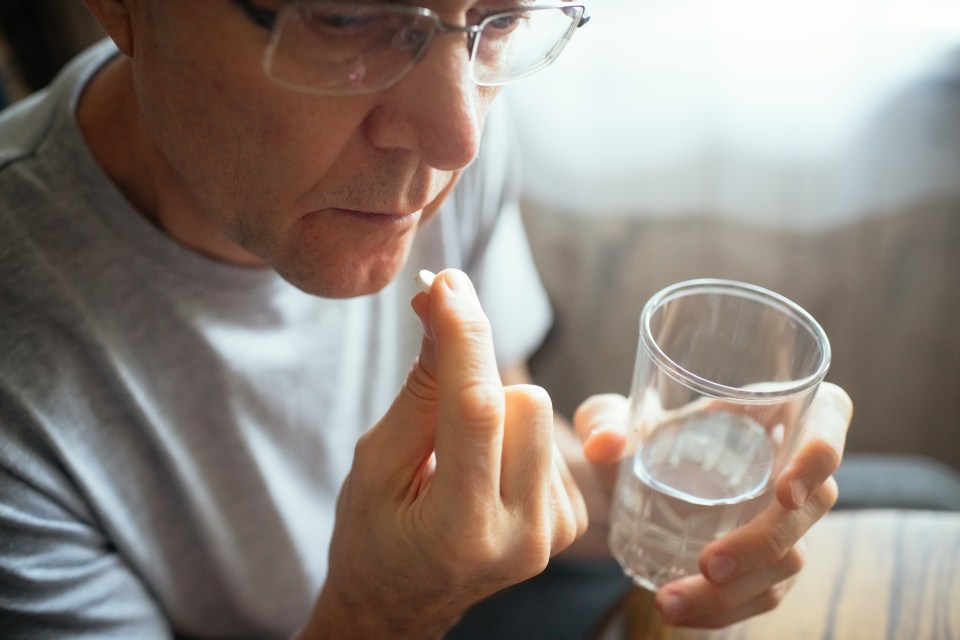THOUSANDS more men should receive an existing prostate cancer drug on the NHS as research shows it could halve their death risk.
Scientists say abiraterone could help many more blokes than are currently eligible to receive it under an NHS “postcode lottery”.
The Institute for Cancer Research in London used artificial intelligence tool to detect biomarkers invisible to the human eye to work out who would benefit.
The study found it would benefit one in four patients with high-risk prostate tumours that have not yet spread, equal to around 2,000 men per year in England.
They are currently denied access to the drug because health chiefs do not believe it to be cost-effective, although it is available in Scotland and Wales, and for other tumour types in England.
It comes after The Sun on Sunday revealed some blokes are paying for their own treatment.
Read more on prostate cancer
Keith ter Braak, 82, from Somerset, said he forks out thousands of pounds per year to buy drugs privately, adding: “Abiraterone keeps me alive. I don’t know whether my bank account or my health will last longer.”
Study leader Professor Nick James, from the ICR, said: “I truly hope that this new research will lead to NHS England reviewing their decision to fund abiraterone for high-risk prostate cancer that has not spread.
“Access is currently a postcode lottery, with those living in Scotland and Wales able to receive the treatment for free but the NHS in England deciding it is too expensive.
“Since the patent expired in 2022, abiraterone costs just £77 per pack.
“My team has shown that preventing cancer relapses for these men would save more money than the drug costs to purchase.”
Prof James’ new study, presented at the conference of the American Society for Clinical Oncology, found that men with a certain tumour biomarker saw their risk of dying within five years slashed from 17 per cent to nine per cent.
Three out of four patients did not have the biomarker and saw no significant risk reduction, so would not benefit.
Targeting abiraterone specifically at the men identified by the algorithm could save the NHS 75 per cent of its assumed prescription cost.
Dr Matthew Hobbs, director of research at Prostate Cancer UK, said: “We have been calling on the Government to approve this life-saving, cost-effective drug for over two years.
“These exciting results suggest a way to make this an even more cost-effective approach.
“We echo the researchers’ urgent call for abiraterone to be made available to those men whose lives it can save.”
Prof Kristian Helin, chief executive of The Institute of Cancer Research, said the drug has been a “game changer for treatment of prostate cancer”.
Prostate cancer is the most common form of the disease in men, with 55,000 new cases every year in the UK, and famous patients including former US President Joe Biden, actor Stephen Fry and Olympic cycling legend Chris Hoy.
One in eight men will get prostate cancer

The risk of developing prostate cancer depends on many factors, here are some of the facts about the disease and how many men it affects.
- One in eight men will get prostate cancer in their lifetime
- It is the fourth most common cancer worldwide, and the most common in men
- There are 55,000 new cases every year in the UK, and 1.4million globally
- Around 12,000 people lose their lives to prostate cancer annually in the UK and almost 400,000 around the world
- Prostate cancer accounts for 28 per cent of all new cancer cases in men in the UK, and 14 per cent of all new cancer cases in men and women combined
- Prostate cancer survival has tripled in the last 50 years in the UK
- More than three-quarters (78 per cent) of patients survive for 10 or more years
- About 490,000 men are living with and after prostate cancer in the UK
- It is most common in men aged 75 to 79
- Since the early 1990s, cases have increased by 53 per cent in the UK
- Mortality rates are up 16 per cent since the early 1970s in the UK
- Incidence rates are projected to rise by 15 per cent in the UK between 2023 to 2025 and 2038 to 2040
- Mortality rates are expected to fall five per cent in the UK over the same years
Source: Prostate Cancer UK, World Cancer Research Fund International and Cancer Research UK













